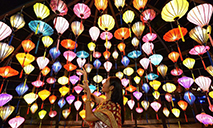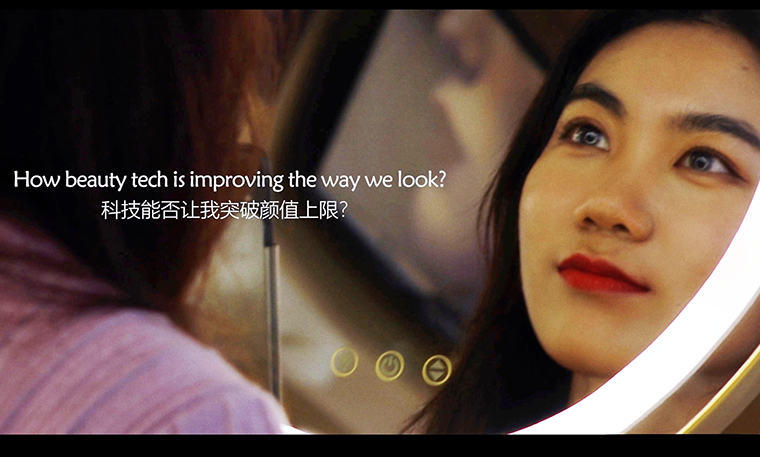China's modernization drive unleashes opportunities for world
SHANGHAI, Nov. 10 (Xinhua) -- "The capital of Uruguay is one of the farthest national capitals from Beijing. So if China's modernization has any influence on Uruguay, it surely influences the rest of the world," said Fernando Lugris, Uruguay's Ambassador to China.
The ambassador made the remarks during the fourth Hongqiao International Economic Forum held last week in Shanghai, a sideline event of the ongoing fourth China International Import Expo (CIIE), a dedicated national-level import expo.
As China has embarked on a new journey of building a modern socialist country in all respects, global brands are passionately catching up with new spending trends emerging in this modernization drive. Such a vibe can be felt across the 366,000-square-meter venue of the fourth CIIE where some 3,000 enterprises from across the world gathered from Nov. 5-10.
From daily necessities to luxury goods, "low carbon" and "sustainability" are featured in nearly every exhibition area, as China is speeding up the transformation to a clean and low-carbon energy consumption structure.
The country has set the goals of peaking its carbon dioxide emissions before 2030 and achieving carbon neutrality before 2060. It is also expected that the proportion of non-fossil energy in China's total energy consumption will be close to 25 percent by 2030.
Michelin has brought to this year's Expo a Mission H24 car that the company says is the world's first endurance race car fully powered by hydrogen.
"The only output is water vapor: it is a 'zero-emission' racing car," said Kamran Vossoughi, president and CEO of Michelin China, adding that it is also equipped with Michelin's new racing tires that contain 46 percent sustainable materials.
"We firmly believe that by supporting hydrogen-powered race, we can accelerate the deployment of hydrogen technology and green tire to enable zero-emission mobility," he said.
Chinese consumers are paying growing attention to the environmental value of goods. At Unilever's booth, a special laundry bead attracted a lot of attention, as the carbon in the bead surfactant did not come from fossil fuels, but was obtained through carbon capture technology.
The company has announced a plan to replace all carbon in the formulation of its cleaning and washing products with renewable carbon.
Similarly promising are intelligent equipment and solutions for high-end lifestyle, work environment and healthcare services. German company Karcher made a global debut at the Expo of its third-generation AI Robotic Floor Cleaner that integrates multi-layer perception with AI algorithms, enabling it to easily find its way into every remote corner.
Before this year's Spring Festival, the first generation of the robot was used in cleaning, sterilization and disinfection operations at Shanghai Hongqiao High-speed Railway Station.
Varian, a U.S. radiation oncology treatments and software maker, was one of the first healthcare companies to establish a footprint in China in 1983. This year, the company showcased the latest products and technologies of its Intelligent Cancer Care initiative.
"Encouraged by CIIE, we have expanded manufacturing capabilities and capacity at our site in Beijing to better serve the users of our technology and their patients. Our manufacturing capacity in Beijing has increased sixfold in three years," said Chris Toth, CEO of Varian.
For the first time, the CIIE has established a section for cultural relics and artworks. World-renowned auction houses come to present over 100 exhibits with a total estimated value of 2.35 billion yuan (about 368 million U.S. dollars).
Sotheby's, for example, brought to the Expo a selection of masterpieces by Claude Monet, Marc Chagall, Zhang Daqian, among other legendary names.
The exhibits cater to the more sophisticated and diversifying tastes of Chinese collectors and are available for purchase through private sales, according to Sotheby's.
With the improvement of living standards, Chinese people's demands for art education and art appreciation are becoming ever stronger. In the first three quarters of this year, the inbound and outbound value of artworks in China (Shanghai) Pilot Free Trade Zone reached 7.8 billion yuan, a year-on-year increase of about 250 percent.
Each exhibitor selling artworks, collectibles and antiquities during the Expo can enjoy the preferential policy of exempted import duty, import value-added tax and consumption tax on no more than five pieces.
Rebecca Yang, Chairman of Christie's China, said that it is a favorable policy for both collectors and the auction house, adding that the CIIE has opened up new ideas for Christie's to explore innovation and development in China.
Good results were seen on the first exhibiting day last Friday when procurement intent involving seven artworks with a combined value of over 140 million yuan was reached, according to the Shanghai Municipal Administration of Culture and Tourism.
Nathan Drahi, managing director of Sotheby's Asia, said the new section fosters global cultural exchanges and further develops the arts and culture industry in China.
"We are very grateful for the government initiative enabling Sotheby's to bring exceptional works of art to this year's China International Import Expo," said Drahi.
Photos
Related Stories
- Italian jewelry maker plays long game with presence at CIIE events
- Six buzzwords of CIIE mirror new market opportunities in China
- How "Double Eleven" 20 years ago benefits the world
- Hong Kong intangible cultural heritage debuts at 4th CIIE
- Interview: Dynamic Chinese market offers great trade opportunities, says Mexican trade leader
Copyright © 2021 People's Daily Online. All Rights Reserved.










